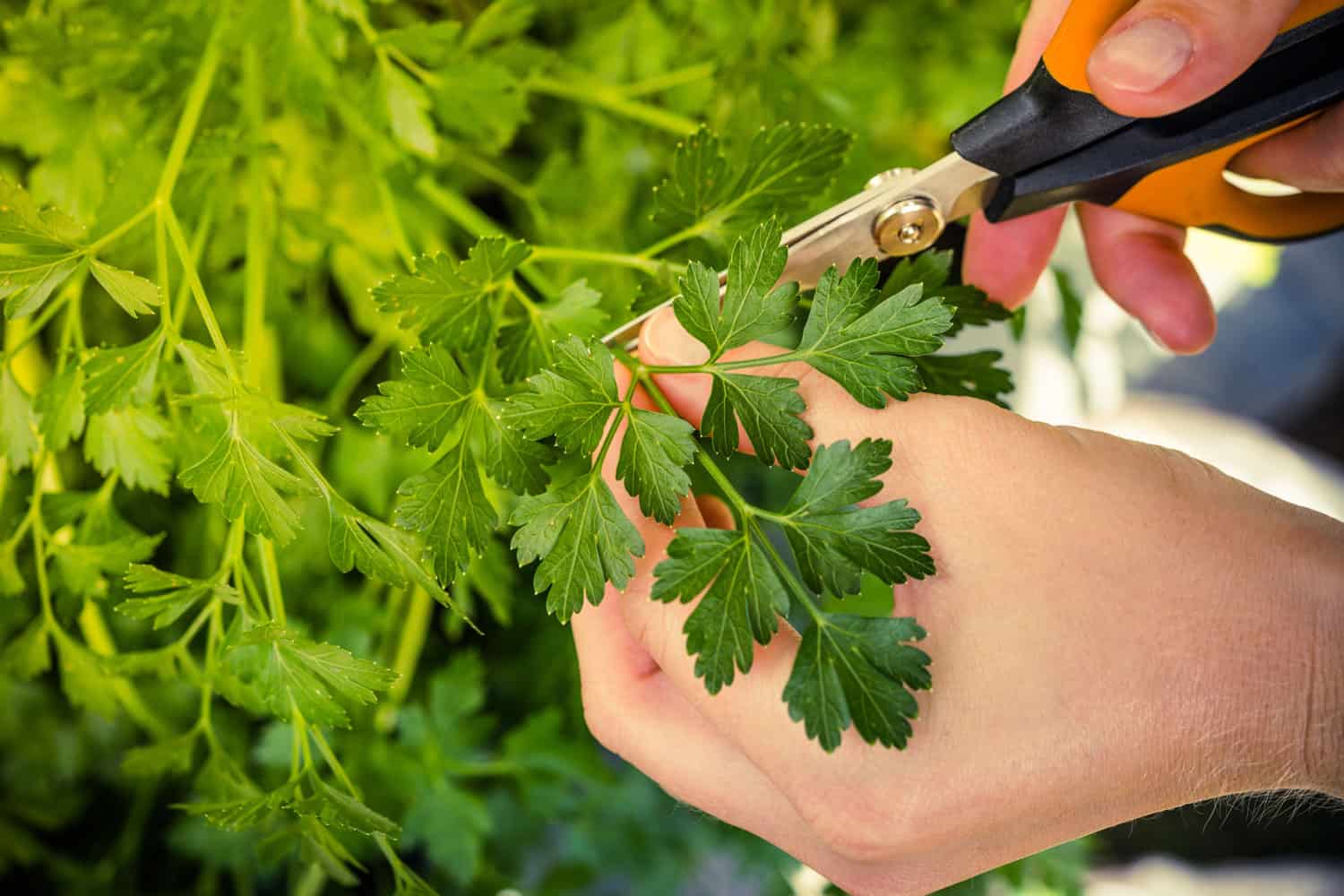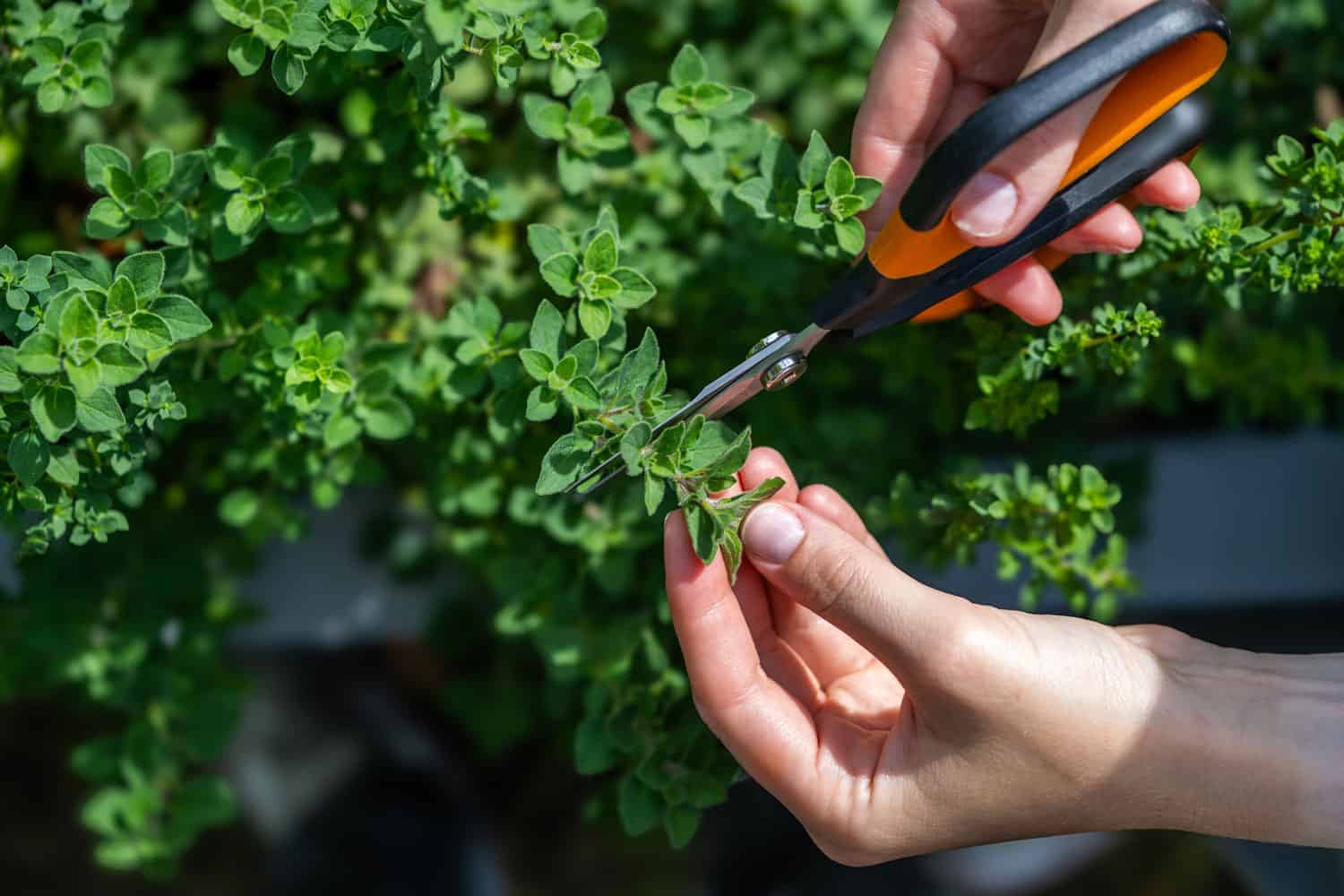Growing your own herbs brings a special touch to your kitchen, offering fresh tastes right from your garden. But what if those herbs don't taste as good as you hoped?
Maybe your dill isn't quite right, or your rosemary lacks its usual kick. Don't worry; there's usually a reason behind this. It could be the soil they're in or how much sun they get.

Understanding these reasons is key to improving their flavor. With a little know-how and some adjustments to your gardening practices, you can turn your herb garden around.
That said, keep in mind that each herb might require different care, and there's no one-size-fits-all solution. Without further ado, let's start!
Reason #1: Inappropriate Herb Selection for Beginners
Starting your herb garden is super exciting, but picking the right herbs is crucial to ensure they thrive and taste amazing.

Sometimes, new gardeners choose too tricky herbs for their skill level or climate, resulting in less flavorful produce.
So, let’s ensure you get off on the right start!
- Research Before You Plant: Know which herbs are friendly for first-timers. For instance, mint and chives are more forgiving and easier to grow, making them perfect starter herbs.
- Suit Your Space: Whether you’ve got a sunny windowsill or a shady balcony, pick herbs that love your living space. Basil loves the sun, while parsley can handle more shade.
- Climate Counts: Some herbs are sensitive to the cold, others to heat. So, be sure your herbal picks match your area's weather patterns.
For starters, you might want some easy-to-grow herbs that you grow in your windowsill. That said, be sure to do your research first to get the right selection!
Reason #2: Improper Pruning
Not pruning regularly or correctly can affect the health and flavor of herbs. Leafy herbs require frequent pruning, while woody herbs need less-frequent care.
Here's how you can snip the problem in the bud:
- The Right Time: Prune your herbs when they are young and haven't flowered yet. Flowering signifies the plant's move towards the end of its life cycle.
- Snip Smartly: Always cut above a leaf node. This promotes more branches and leaves, which means more flavor for you!
- Tools of the Trade: Use sharp scissors or shears. Dull tools can crush stems, causing damage to the plant.
- Avoid Over-Pruning: Prune no more than one-third of the plant at a time. Overdoing it can stress the plant and weaken the flavor.
Reason #3: Environmental Stress
Their environmental conditions deeply influence the flavor of homegrown herbs. Ideally, these herbs thrive best with around four to six hours of daily sunlight.
However, it's a delicate balance, as both insufficient and excessive sunlight can adversely affect their taste by causing stress to the plants.
Soil quality is another critical aspect, with most herbs prefer well-drained soil that has a pH level of around 6.0 to 7.0.
Also, the way you water these plants plays a vital role. It's important to avoid both extremes of over-watering and under-watering, as they can negatively impact the herbs, further influencing their taste.
Here's what you'll need to do:
- Give them plenty of sunlight to ensure the development of essential oils, the compounds responsible for aroma and taste.
- Go easy on the water. Herbs from dry regions like thyme and rosemary enjoy a little thirst. They produce more concentrated flavors when water is scarce.
- Keep the soil on the leaner side. Overly rich soil leads to lush leaves but diluted flavors.
Reason #4: Soil Nutrient Deficiency
Herb flavors depend a lot on the soil they grow in. The right mix of nutrients like nitrogen, phosphorus, and potassium is key for good growth and taste.
Nitrogen helps leaves grow well, phosphorus keeps the plant healthy, and potassium is important for the plant's water balance and other processes.
The soil's pH, whether it's more acidic or alkaline, also matters because it changes how plants get nutrients.
Here are some steps you can take to turn any of these dilemmas upside down:
- Nitrogen Troubles: Beef up the nutrient content with aged poultry manure or a plant-based alternative.
- Phosphorous & Potassium: A balanced fertilizer, ideally organic, can replenish these vital nutrients.
- Calcium & Magnesium: Lime or dolomite can rebalance the soil's pH and add that much-needed calcium or magnesium boost.
Being proactive with your herbs' soil health can be key to flavorful herbs, so be sure to maintain the right soil!
Reason #5: Timing and Incorrect Harvesting Techniques
When growing herbs, the flavor can be significantly influenced by the timing of your harvest.
To maximize the flavor, it’s essential to pick the leaves before the plants flower, as afterward, the taste could change.
The oils that give herbs their delightful aroma and taste are at their most potent at this pre-bloom stage.
Incorrect harvesting techniques can also impact flavor. For example, it's best to harvest in the morning, after the dew but before the heat sets in, to ensure the essential oils are at their peak concentration.
Also, trimming the wrong parts of the herb or using improper tools can damage the plant, leading to less flavorful future growth.
Here’s a quick guide to help you:
- Leafy Herbs: For herbs like basil or mint, always cut the leaves from the top to encourage new and flavorful growth.
- Seeds and Flowers: For optimal timing when harvesting herb seeds, pick them as they start changing color but before full maturity, and pick flowers as they're just about to open fully.
- Herb Roots: For those of you growing herbs for their roots, such as chicory, harvest in the fall when the plant's above-ground foliage begins to wane.
Wrapping Up Your Flavorful Herb Journey
Embarking on the adventure of growing homegrown herbs brings freshness and vibrancy to your meals like nothing else can.
As you've learned here, the key to unlocking intense flavors lies in understanding the unique needs of your plants.
Before you go, here's a short checklist of what you should keep in mind!
- Ensure your herbs bask in ample sunlight. Check that they're receiving at least six hours of direct light daily—more if possible!
- A consistent watering schedule helps your herbs thrive without water stress.
- Nutrient-rich soil feeds your herb's flavor. Mix in compost for a natural boost that encourages lush, flavorful growth.
- Regularly trimming encourages lush growth and more fruitful herbs.
With these tips, your homegrown herbs will transform from lackluster to flavorful goodness. So go ahead, nurture your garden, and watch as every pinch adds flavor to your favorite dishes!
